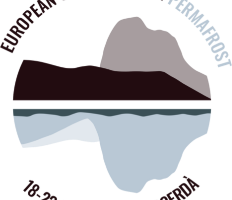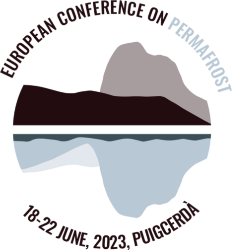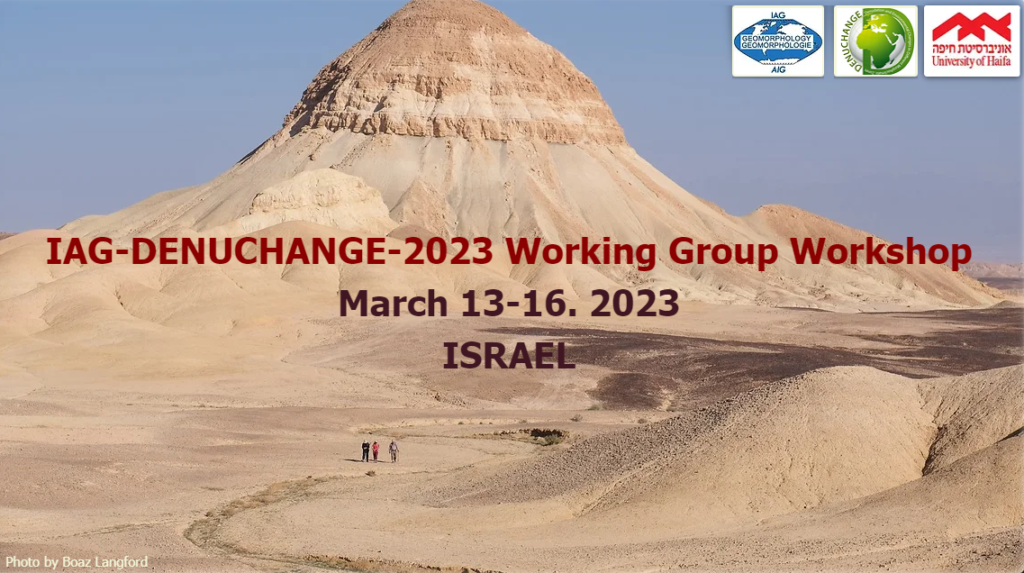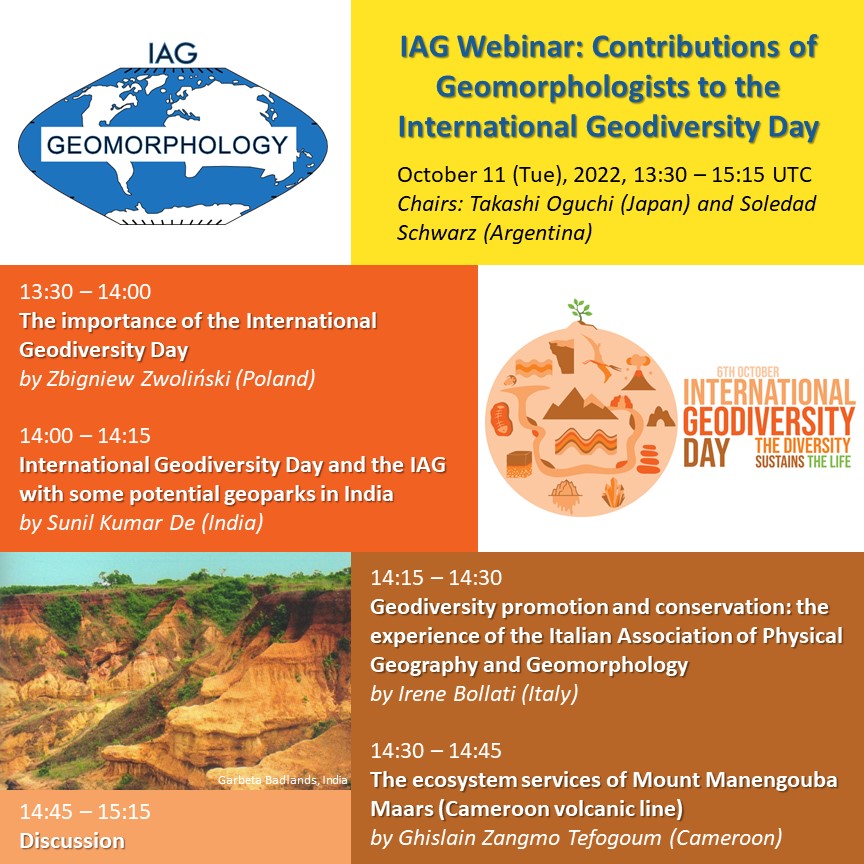
The 10th International Conference on Geomorphology (10th ICG) was held from 12 to 16 September 2022 in Coimbra (Portugal). It comprised 25 scientific sessions (program), a post-conference intensive course designed for Young Geomorphologists (intensive course guide), and pre-, mid-, and post-conference field trips (field guides). The 10th ICG also hosted meetings of the IAG Executive Committee and the IAG General Assembly, as well as social events.
The following report (in .pdf here) was written by the Local Organising Committee:
10th IAG International Conference on Geomorphology Report
1. Background leading up to the Conference
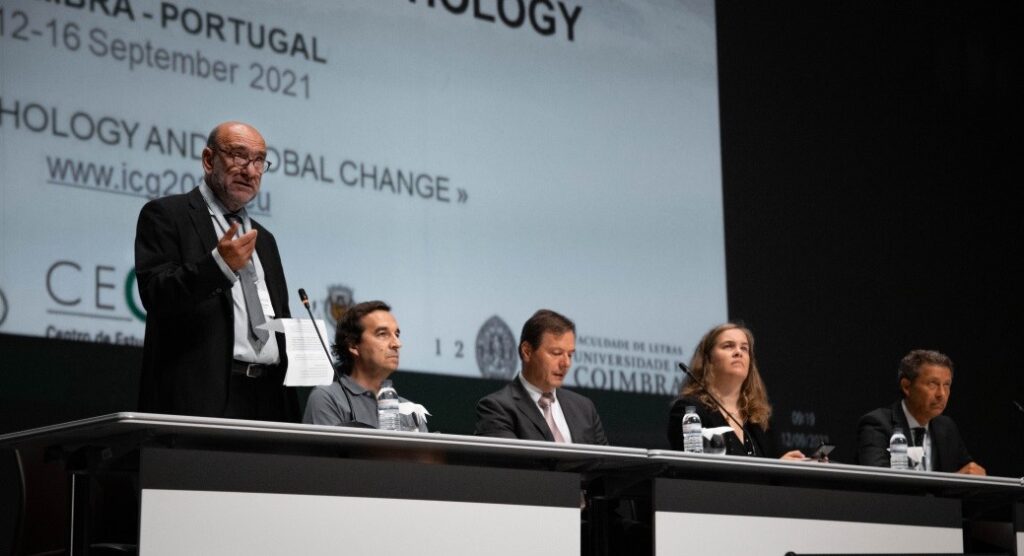
Photo 1 – Opening session of the Conference
The organisation, preparation and hosting of the 10th International Conference on Geomorphology of the IAG were affected by two large-scale international events which had a major impact on people’s ability to meet and move around: firstly, the COVID 19 pandemic, of which the aftereffects are still being felt, and more recently, the war between Russia and Ukraine. The direct constraints and uncertainties about the short-term future led to the postponement of the Conference from 2021 to 2022, as well as a successive postponement of the deadlines set for each of the preparation phases, and to a significant reduction in the number of registrations, both due to the uncertainties and insecurity in relation to the pandemic crisis and, later, due to the war, with a natural reduction in registrations of at least Ukrainian and Russian geomorphologists. These constraints meant that some logistical adjustments had to be made, particularly to pre-established deadlines. For example, the registration deadline, which should have been the end of July, but in practice registrations were accepted until the start of the Conference, with all the small upsets that this always entails.
2. The venue of the Conference

Photo 2 – The venue of the Conference – S. Francisco Convent
As the Conference was expected to attract a thousand or so participants, the Convent of St. Francis, on the left bank of the River
Mondego in the city of Coimbra, was chosen as the venue. Due to its aesthetic and functional conditions, this option turned out to be appropriate. However, the fact that a large number of rooms had to be used, which were not initially equipped for image projection and sound installation, meant that sound, image and videoconferencing services had to be subcontracted, with inevitable additional financial costs.
The somewhat peripheral location of the Convent of St. Francis, relative to the central part of the city, prompted us to offer the participants a buffet lunch for the four days of indoor work, so as to keep to the established schedules and to favour greater interaction among the participants. This option assured the fulfilment of these objectives, since the participants remained in the event space in constant interaction and the development of the work in the scheduled times was guaranteed.
3. The cooperation of the Copernicus Agency and Abreu Travel Agency
The handling of the support work for the preparation of the Conference (website, registration for the Conference and the various associated activities, much of the interaction with participants, payments and returns) was carried out by the Copernicus Agency, whose experience and high standard of quality we are pleased to highlight. However, this agency decided not to be present in Coimbra to provide organisational support and to coordinate Secretarial tasks during the event due to ongoing uncertainties related to international travel.
Under these circumstances, we requested the assistance of a reputable national Travel Agency, Agência Abreu, to help us, both in the preparation of the Field Trips and during the Conference in the management of the Secretarial tasks. The latter task was also declined, albeit belatedly, due to a lack of available staff.
These circumstances implied an increase in the tasks that had to be borne by the local organising committee, leading to a reduction in the number of people available per task. However, we must highlight the contribution of the members of the Organising Committee, accompanied by a group of students, who spared no effort to gather the best conditions for the realisation of the event and its related activities.
4. Scientific Planning – Thematic sessions

Photo 3 – Aspect of one of the parallel sessions
The agenda of the Conference was structured in 25 thematic sessions, which stemmed from proposals of the Organising Committee and from the interaction with the members of the IAG EC, with its Working Groups and with the conveners invited to organise the work of the sessions.
Of these thematic sessions, only Session 4 – Experimental Geomorphology failed to receive proposals for presentation of work in the form of oral or poster presentations. All others were sought after by geomorphologists for presentation of their work, although not to the same level (see figure 1). Among the most sought-after sessions were:
- ICG2022-10 – Fluvial Geomorphology
- ICG2022-24 – Geoheritage, Cultural Geomorphology and Geotourism
- ICG2022-19 – Geomorphological Hazards and Risk Management
- ICG2022-8 – Glacial and Periglacial Geomorphology
- ICG2022-12 – Marine and Coastal Geomorphology

Fig. 1 – Distribution of the registered works by thematic sessions
For various reasons, some of the conveners were unable to travel to Coimbra, so it was necessary to find someone among the participants to replace them in the daily conduct of the thematic sessions. Invitations were sent out so that each thematic session would always have at least two chairs running the presentations.
5. Number of participants and their origin

Fig. 2 – Distribution of participants by country

Photo 4 – Conference attendees during a coffee break
According to the Copernicus Agency’s latest records (30 September 2022), 560 participants from 46 countries around the world registered for the Conference (see figure 2). Besides proximity issues, the travel difficulties experienced by potential participants originating from outside Europe help to explain the fact that European countries had a more significant representation. However, areas of the globe such as Africa, Latin America and Southeast Asia were also well represented.
In any case, of the 560 geomorphologists registered, 537 were in Coimbra, which represents about 96% of the registrations made, a value that we consider quite good in view of the travel constraints (including some last-minute ones, such as the granting of visas) that the international circumstances at the time imposed.
6. Oral and poster presentations
Based on the approved abstracts, it was expected, according to the registration list, 665 works (422 oral presentations and 243 poster presentations). Since it is impossible to verify exactly the number of works actually presented, we estimate a figure of around 380 oral presentations and 215 poster presentations, which corresponds to a total of 595 works. The impression gathered from conversations with different participants and with some of the conveners was that the majority of the works presented showed high scientific quality, as well as a high degree of theoretical and methodological innovation.
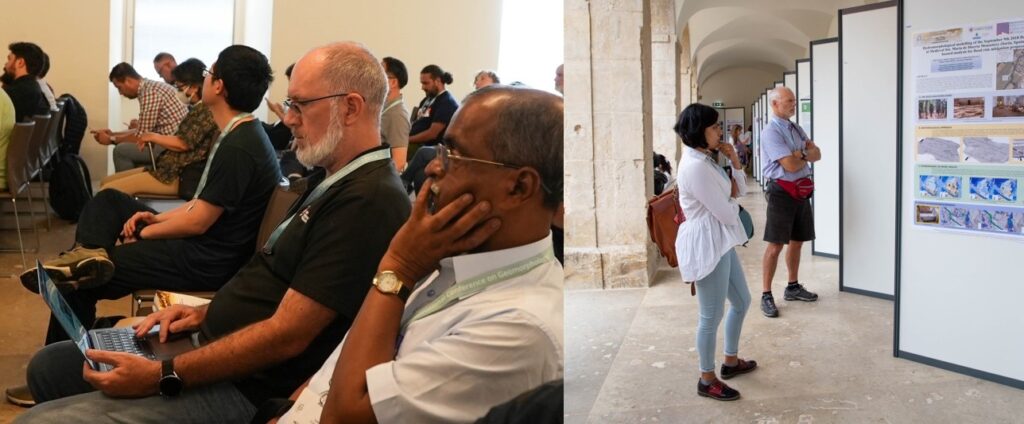
Photo 5 & 6 – A view of the audience of one of the parallel sessions (left) and Poster presentations (right)
7. Field trips
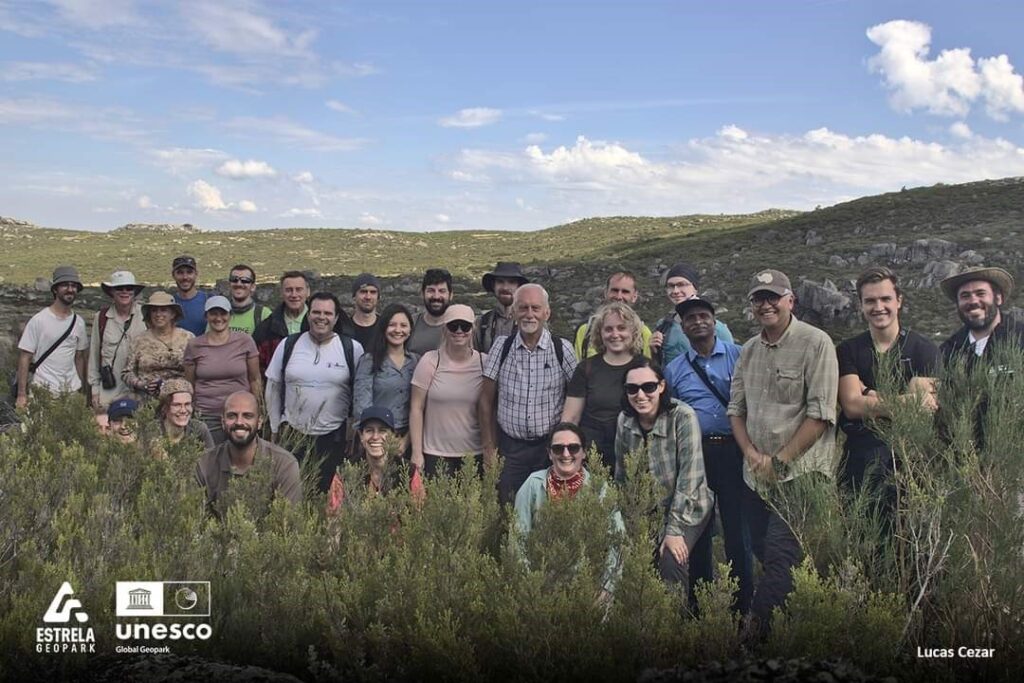
Photo 7 – Field trip to Serra da Estrela
Field trips are, as a rule, one of the most sought-after activities in Geomorphology scientific events and this 10th International Conference would not be an exception! However, the uncertain conditions also weighed on the registration of the participants. Therefore, the lack or reduced number of registrations for some of the pre- and post-conference field trips, registered in July 2022, led to their cancellation, considering the expenses involved and the time needed for their preparation (guidebooks, buses, accommodation, meals). Still, at the time of the Conference 8 field trips were scheduled and available (1 pre-Conference, 4 on Wednesday during the Conference week and 3 post-Conference). Unfortunately, due to problems related to weather and safety conditions, we had to cancel at the last moment the one-day trip to Serra da Estrela (14 September 2022). The blocking of roads, the isolation of some villages and the forecast of more storms, led us, for safety reasons, to take this decision…
The pre-Conference trip to Cape Verde and one of the post-Conference trips took place with a small number of participants (only 9). The 3 trips on Wednesday had about 50 participants each and the other two post-Conference trips had more than 22 participants. According to the feedback collected, the trips were very interesting at the scientific level, highlighting the best Portuguese Geomorphology.
8. The Intensive Course for young researchers
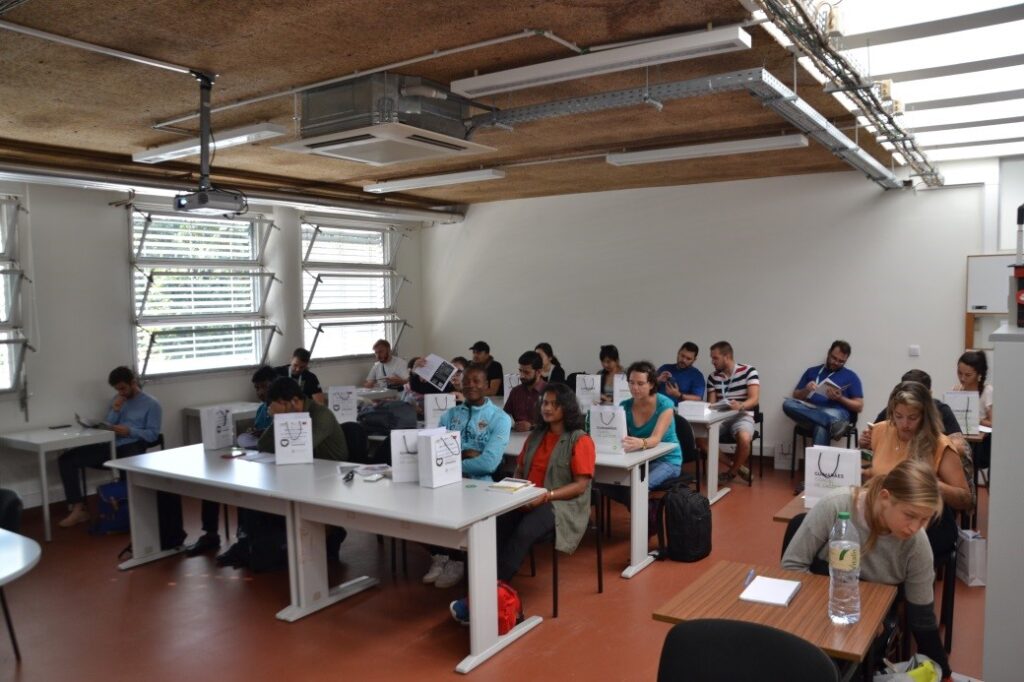
Photo 8 – Intensive Course held at the University of Minho
An intensive course for young researchers, held at the University of Minho in Guimarães, was seamlessly integrated in the Conference activities. It consisted of integrated training activities, with lectures, fieldwork and laboratory work.
The ICG 2022 IAG-EGU intensive course for young geomorphologists was dedicated to the topic “Geomorphological changes in landscapes affected by fire: field and laboratory techniques for soil erosion analysis”. The intensive course was aimed at early career reserchers (ECR) and was attended by 22 young researchers from different countries such as Iran, India, Brazil, Costa Rica, Russia, Poland, Croatia, Italy, Canada, Republic of Korea, Israel and Slovenia (for various reasons, 3 of those enrolled could not, at the last minute, attend).
The intensive course provided training for ECRs in field surveying and soil erosion investigation in fire-affected areas, coupled with laboratory techniques (soil analysis) and with the implementation of geospatial technologies (GIS and Remote Sensing).
This event was part of the IAG training programme and provided an extraordinary opportunity for early career scientists, and especially for those from less favoured countries, to increase their knowledge in Geomorphology and soil erosion related to forest fires and to network with experienced scientists in an international but informal setting.
The event was organised in collaboration with the Geomorphology Division of the EGU, on the basis of the memorandum of understanding signed between the latter and the IAG. It was also supported by Comland – Commission on Land Degradation and Desertification, by the International Geographical Union, and by the Group Français de Geomorphologie (GFG).
The intensive course was given by specialised geomorphologists with different backgrounds (Portugal, Brazil, Spain and Israel) who delivered lectures on specific topics during the first day. The second and third days of the course were dedicated to fieldwork, where the participants could come into contact with areas affected by forest fires, and it was possible to observe and analyse several examples of soil erosion and gully development in areas affected by fire, allowing the discussion of topics covered in the lectures of the first day. The fourth and last day of the course was dedicated to laboratory work. During the morning, different soil analysis techniques were presented, explained and discussed with the participants. In the afternoon, the focus was on the implementation of geospatial technologies (GIS and RS), developing soil erosion modelling exercises with GIS and RS and the use of UAV for soil erosion monitoring and modelling.
9. Opportunity to publish the work presented
The main goal of an International Conference is the presentation and discussion of research work. This presentation is made, directly, at the time of the Conference, for those who participate in it, and is then reproduced, consolidated and disseminated to the scientific community via publications with international reach in highly reputable journals of great scientific merit. To accomplish this goal, the conveners of the different thematic sessions were encouraged to seek the publication of Special Issues in indexed journals whose content matched the theme of the papers in each session.
According to the available information, 15 collaborations of this type have been or are being negotiated, 9 of which have already been formalised: Geomorphology (Forms, Processes and Landscape Change); Geomorphologie: Reliefs, processus, environnement (Climatic Geomorphology); Zeitschrift für Geomorphologie, Geomorphology (Tectonic and Seismic Geomorphology); Zeitschrift für Geomorphologie, Global and Planetary Change (Fluvial Geomorphology); Geosciences (Aeolian Geomorphology); Geomorphology (Karst Geomorphology ); Earth Surface Dynamics (Planetary Geomorphology).
Also, a volume of the extended abstracts (up to 6 pages) with peer review is planned to be published in the ASTI Book Series (SPRINGER). There will be no charge to the authors. The proposal is already submitted, and the Conference Organising Committee is waiting for a positive feedback from Springer to start the abstract submission and review process.
These publications are expected to bring more visibility and deserved international scientific projection to the works presented at the Conference.
10. Social engagement

Photo 9 & 10 – A view of the social dinner (left) and Student performance for the participants (right)
As previously mentioned, the conditions and location of the Convent of St. Francis, within the city, made it possible to keep the participants together in the building during the proceedings. A set of social activities was prepared which included, in addition to lunches, coffee breaks, welcome drinks at the end of the first two days’ work and a social dinner on Thursday evening. The traditional music of Coimbra, which is closely linked to its student life, was provided thanks to a student music group (Estudantina), which played at the welcome drink, and a group of fados from Coimbra, which entertained us during the social dinner. We hope that the participants in the conference took a bit of Coimbra and its culture back home with them.
11. Summary and acknowledgements
In addition to the scientific sessions, namely the presentation of oral communications and posters, tributes were paid during the Conference (IAG Honorary Fellows: Dénes Lóczy (Hungary), Ana Luiza Coelho Netto (Brazil), Monique Fort (France), Antonio Cendrero Uceda (Spain), Adrian Harvey (UK) and Mike J. Kirkby (UK)), awarded (Brunsden Medal – Ghislain Zangmo Tefogoum (Cameroon) and Early Career Medal – Irene Maria Bollati (Italy) and Anita Bernatek-Jakiel (Poland)) and grants awarded for young researchers, particularly those from less developed countries to participate in the intensive course of the Conference (21 grants were awarded and the Jean Tricart Prize was awarded to the young geomorphologist Narges Kariminejad (Iran)). Elections were also held for the Executive Committee of the IAG, among many other activities that are part of the life of an International Association with the dimension and the prestige of the IAG.
The IAG 10th International Conference on Geomorphology has come to an end and our balance is very positive regarding the results achieved, both at the level of scientific debate and at the level of hosting and welcoming conditions we were able to provide to the 535 colleagues coming from 46 different countries. Thus, even though we are aware that not everything was perfect, and that we did everything to overcome the small problems that arose, we believe that the goal of organising and experiencing together a “Quality Conference” was achieved!

Table 1 – Key data from the Conference
In addition to the organisation of the scientific sessions (see Table 1) and the logistical support necessary for their operation, tributes were made, prizes were awarded, an intensive course was conducted, and elections were held, among many other activities that are part of the life of an International Association of the size and prestige of the IAG. We tried to help, we always collaborated, and again we think that our task was fully accomplished!
Holding a Conference of this magnitude and responsibility naturally requires teamwork, cooperation and institutional support, as well as much effort, organisation and commitment.
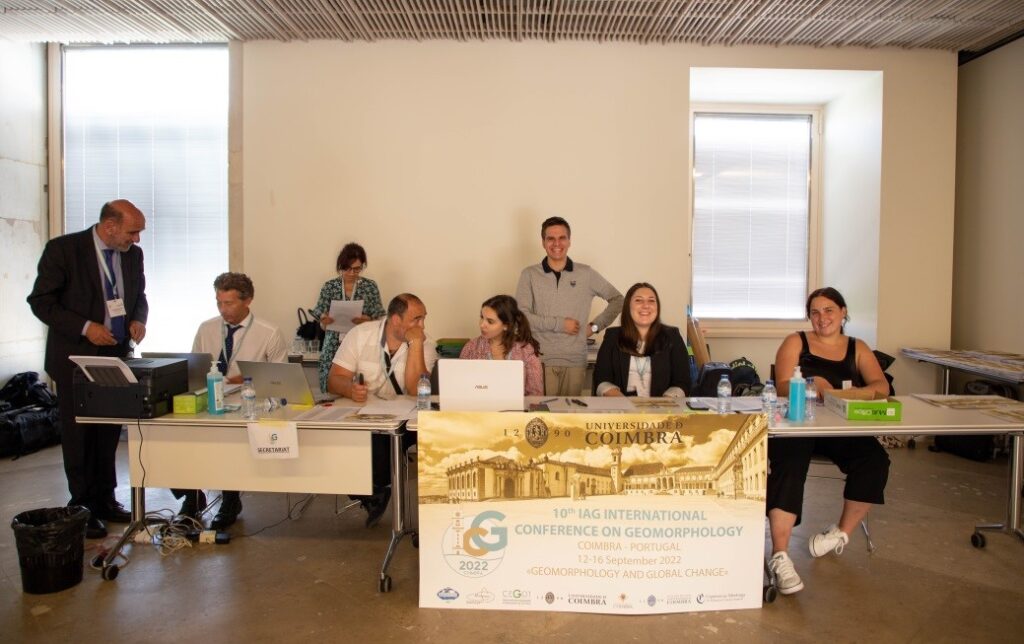
Photo 11 – A part of the Secretariat
As the (“local”) Organising Committee, we must highlight and thank the collaboration of the IAG Executive Committee. Not just the absolute competence of our “liaison person”, the always attentive, helpful and diligent Susan Conway, but also all the comments, suggestions and support we received, frequently, from our President and other members of the EC. Despite the small disagreements that, in our opinion, were always well settled, we had, at all moments of this complex process, the certainty and comfort of knowing that we stood together, on the same path and moving in the same direction. Therefore, many thanks to the IAG for the trust it placed in us, for its critical support and for always having been present.
We also benefited from the institutional support of the Coimbra City Council, through its vice-president, Dr. Francisco Veiga, and of the staff of the Convent of St. Francis, namely the architect Paulo Silva, who was committed, patient and generous in his support at all times.
Naturally, we were also provided with important institutional support from the University of Coimbra, its Faculty of Arts, the Department of Geography and Tourism and the Centre of Studies in Geography and Spatial Planning (CEGOT). It is an honour to work at this University and to know that we can always count on its support!
Other forms of support must also be mentioned and thanked, namely that of the Copernicus Agency, for the efficient and intelligent way in which it was able to solve or point out to us the solutions to many small things that, in terms of organisation, are always arising. We would also like to thank the Social Services of the University of Coimbra for the efficiency and quality of the services provided, to “Licor Beirão” for the evening entertainment and to the musicians who brought to the Conference a bit of the culture of our city and our University. To all, thank you very much for your generosity!
We would also like to express our warmest thanks to the students who took on Secretarial duties, and who were unfailing in attending to and resolving all types of questions posed by the participants.
Lastly, our gratitude goes to the keynote speakers, Monique Fort and José Luís Zêzere for the excellence of their knowledge and for their generosity in sharing it with us in the two lectures they brought us, to the conveners who had the difficult task of managing the thematic sessions and to those responsible for the intensive course and the field trips… Without your work, without your support, the Conference would not have been possible…
In conclusion, many thanks to all of you who participated in the 10th IAG International Conference on Geomorphology, for granting us the privilege of your presence in Coimbra.
The Local Organising Committee



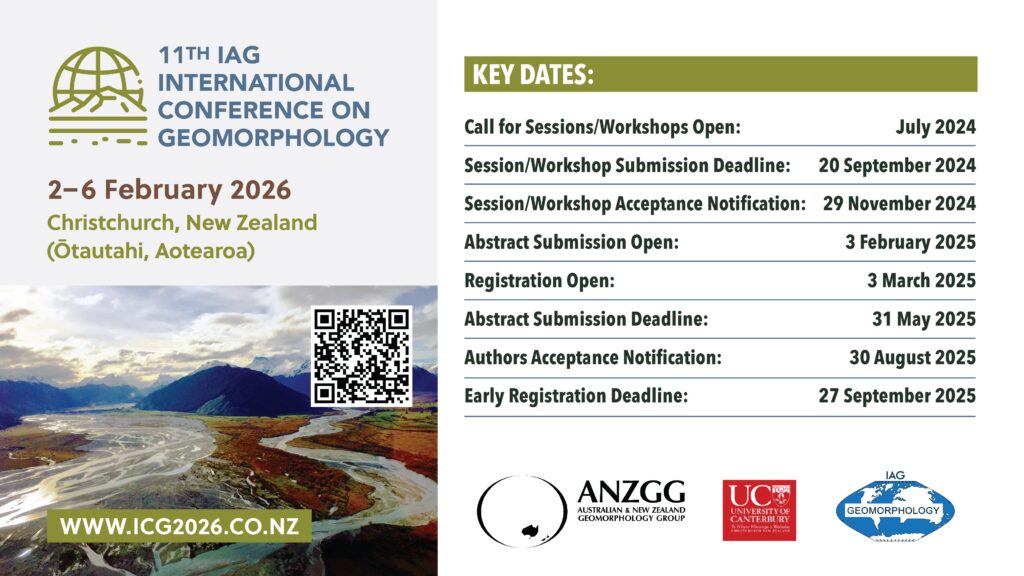





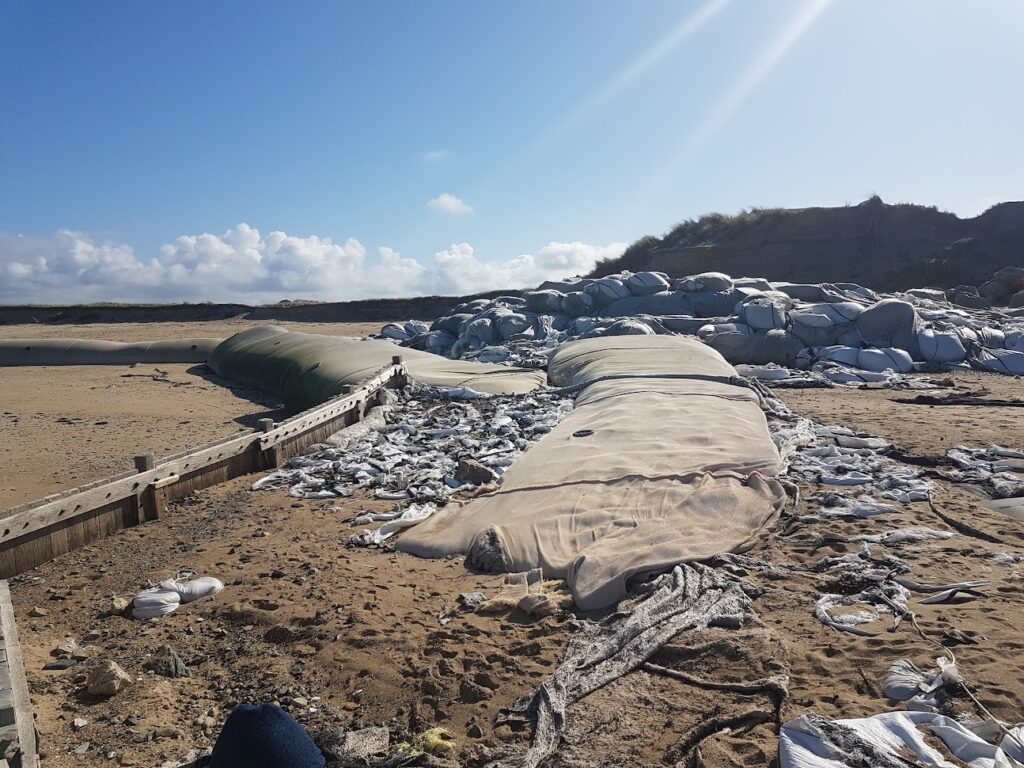



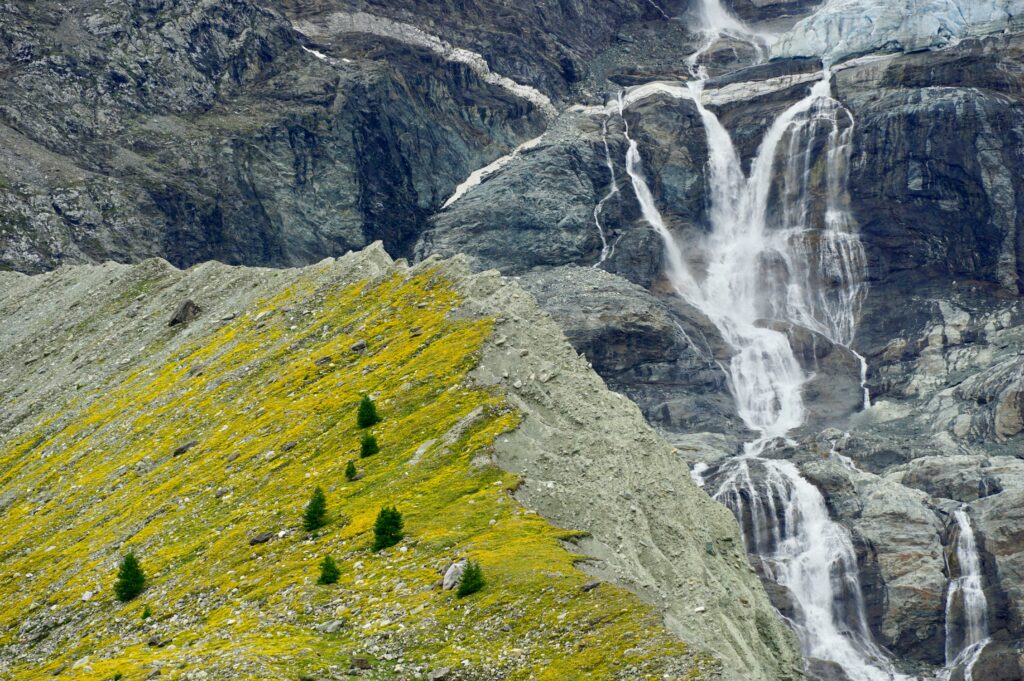

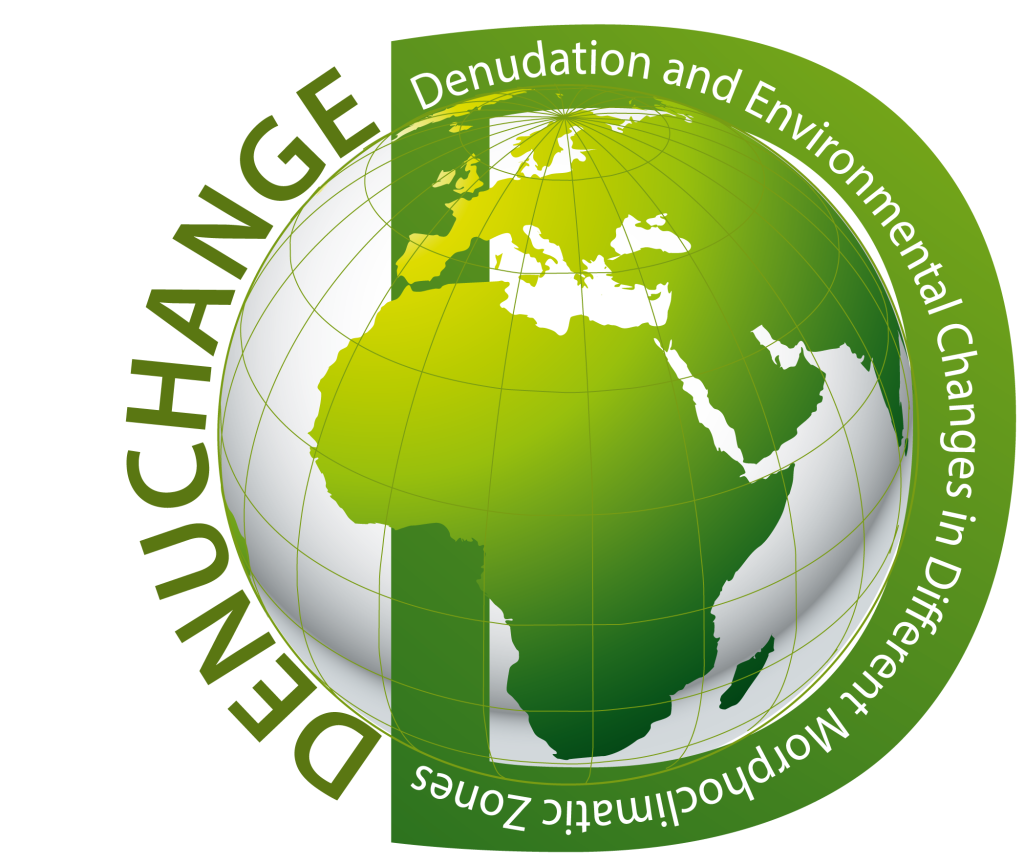

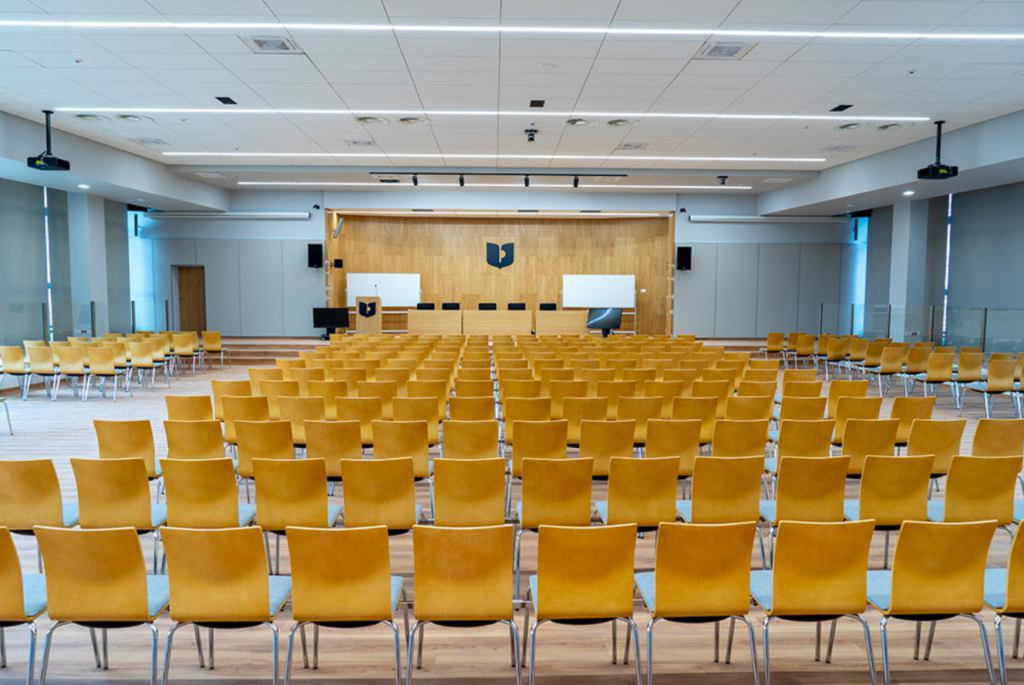

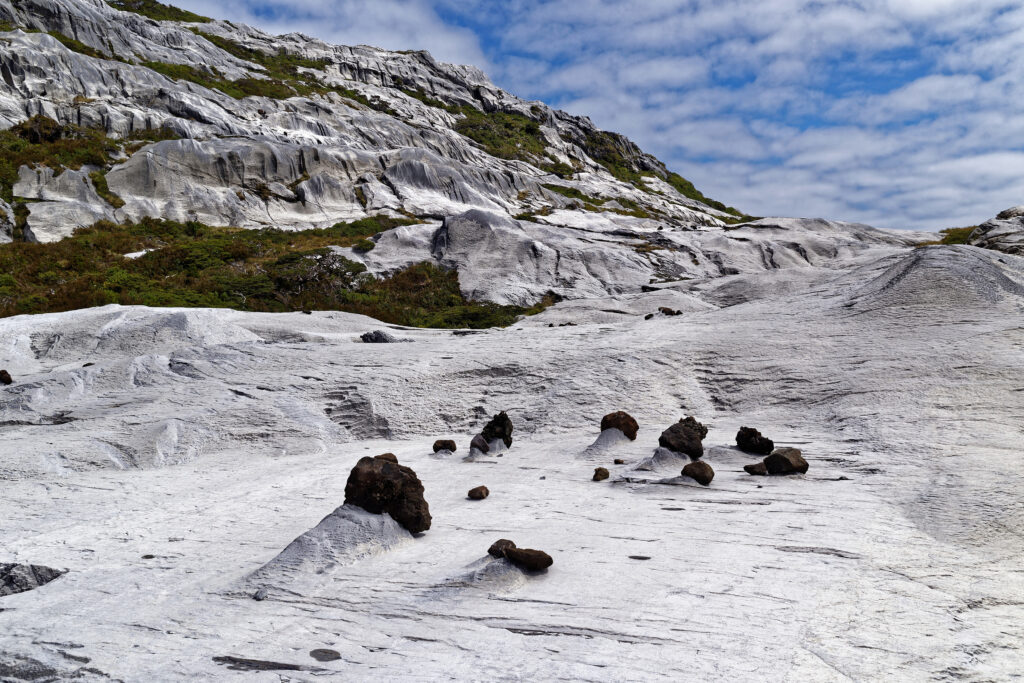

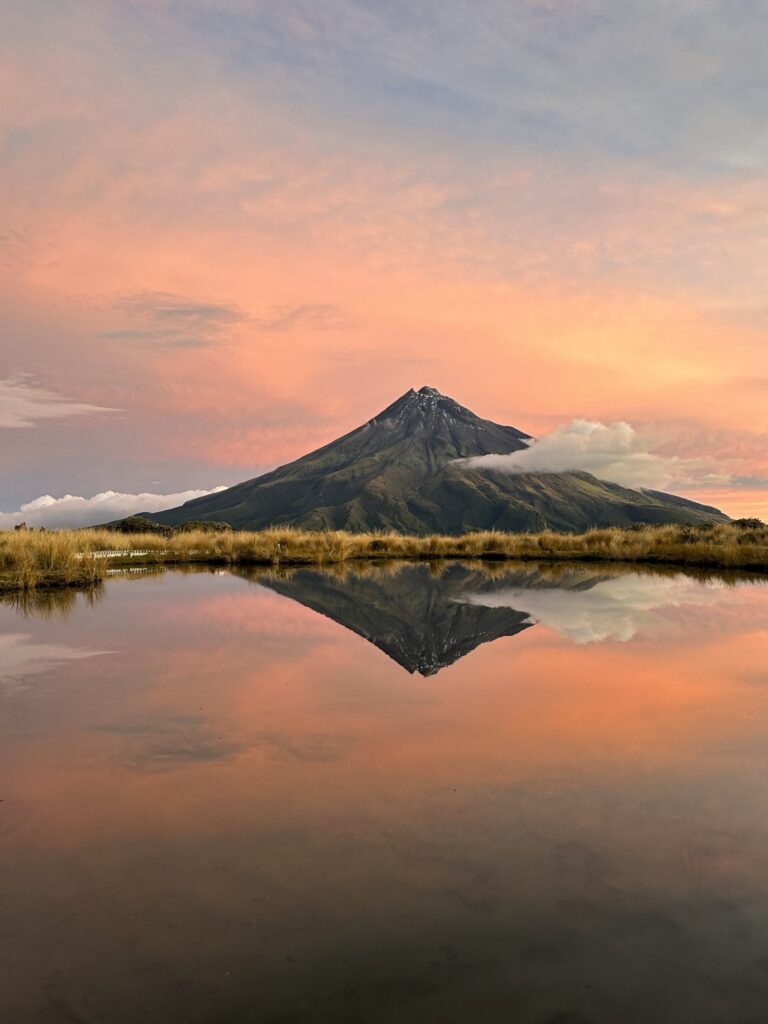

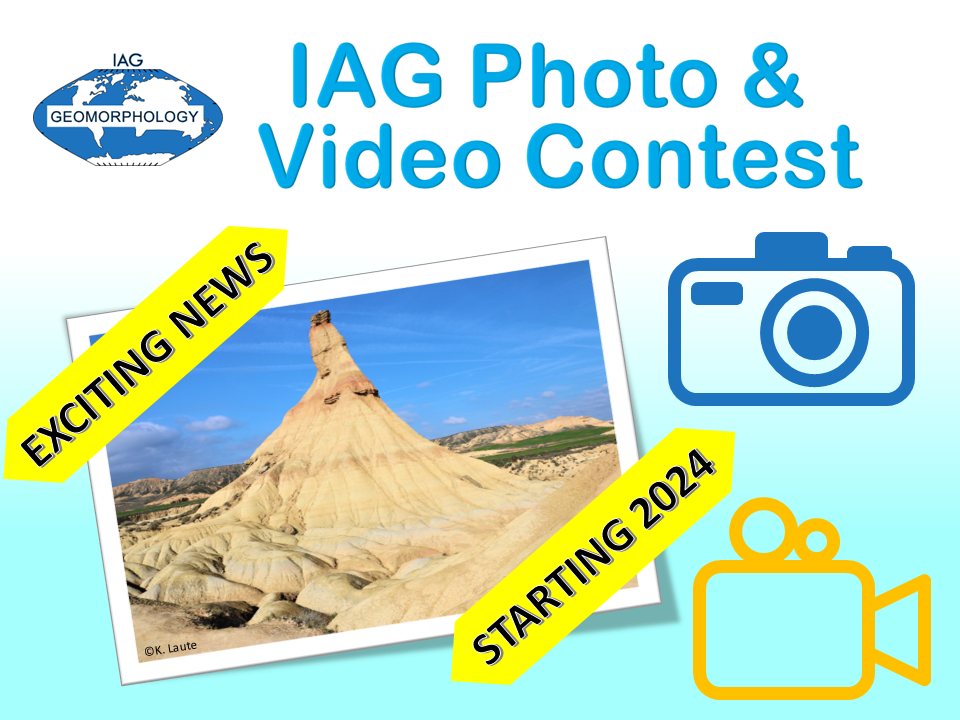 The IAG launches a Photo & Video contest! Each month (for photos) and every three months (for videos), the geomorphology community will be able to submit their best photo/video related to a given theme. A Selection Committee will designate a winner at each iteration, and two Overall Winners per year – who will be granted reduced registration fees to attend one IAG conference!
The IAG launches a Photo & Video contest! Each month (for photos) and every three months (for videos), the geomorphology community will be able to submit their best photo/video related to a given theme. A Selection Committee will designate a winner at each iteration, and two Overall Winners per year – who will be granted reduced registration fees to attend one IAG conference!
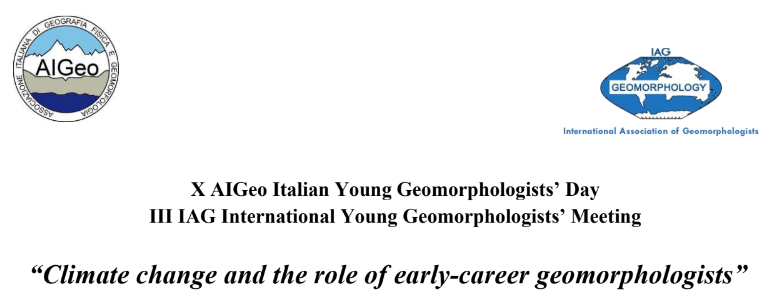

 The IAG Regional Conference on Geomorphology was held in Cappadocia (Türkiye), on 12-14 September 2023. The IAG was happy to offer travel grants, helping 10 Young Geomorphologists to attend this event. Congratulations to them!
The IAG Regional Conference on Geomorphology was held in Cappadocia (Türkiye), on 12-14 September 2023. The IAG was happy to offer travel grants, helping 10 Young Geomorphologists to attend this event. Congratulations to them!
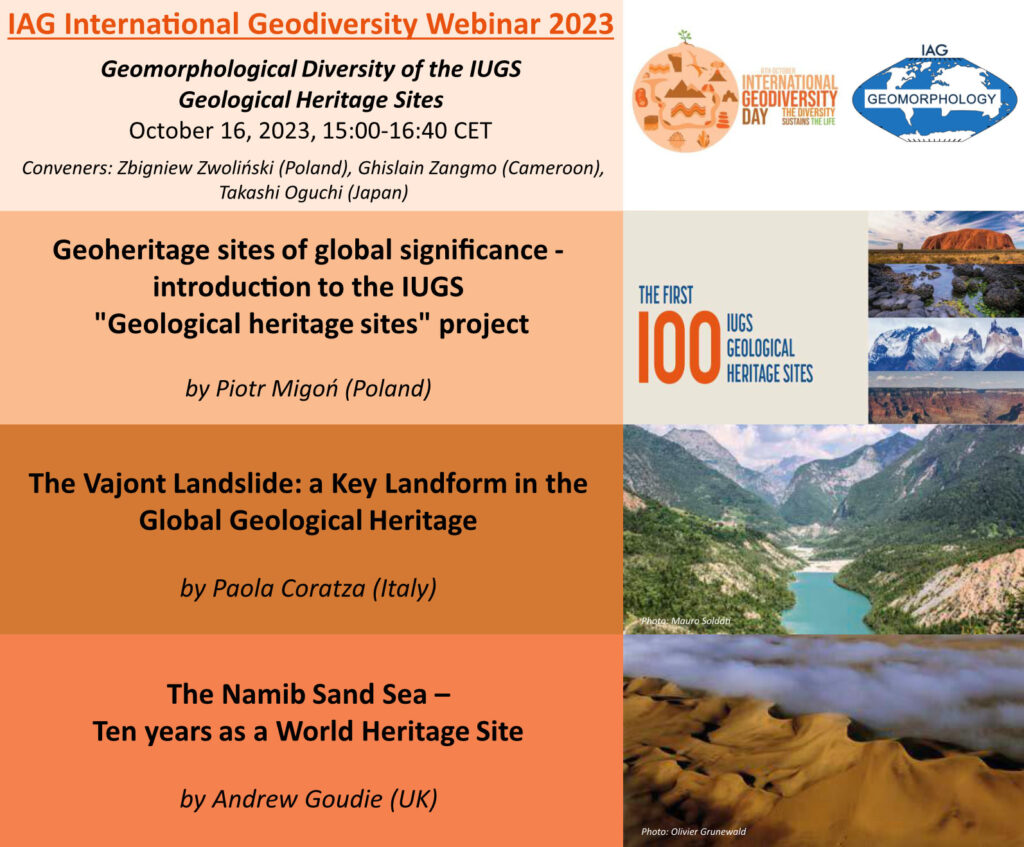 Established in 2021 by the 41st session of the UNESCO General Conference, the International Geodiversity Day occurs each October 6th, and aims at raising awareness of public and policy on the importance of non-living nature.
Established in 2021 by the 41st session of the UNESCO General Conference, the International Geodiversity Day occurs each October 6th, and aims at raising awareness of public and policy on the importance of non-living nature.
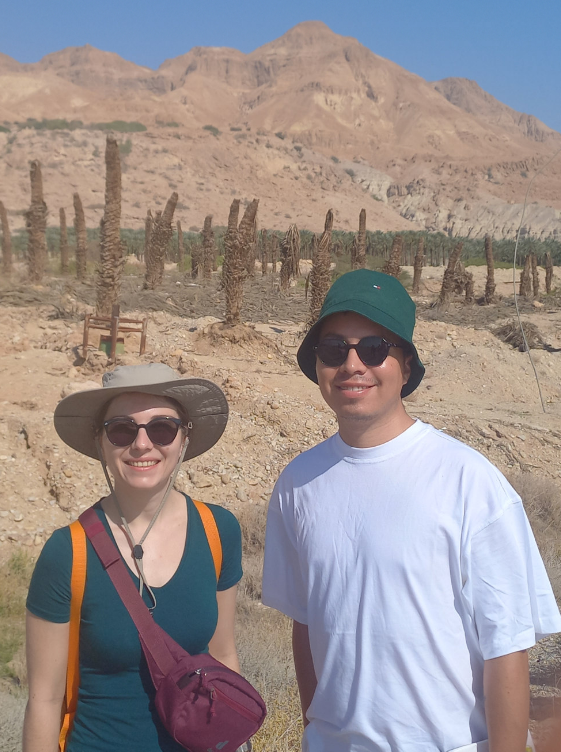



 The Tectonic Geomorphology Working Group is organising a series of five webinars, one each month between March and July 2023. You will have the opportunity to hear speakers from all around the world, talking about various topics related to tectonic geomorphology – including supra-detachment, tectonic uplift, coastal markers of tectonic activity… find the Webinar’s full programme
The Tectonic Geomorphology Working Group is organising a series of five webinars, one each month between March and July 2023. You will have the opportunity to hear speakers from all around the world, talking about various topics related to tectonic geomorphology – including supra-detachment, tectonic uplift, coastal markers of tectonic activity… find the Webinar’s full programme 
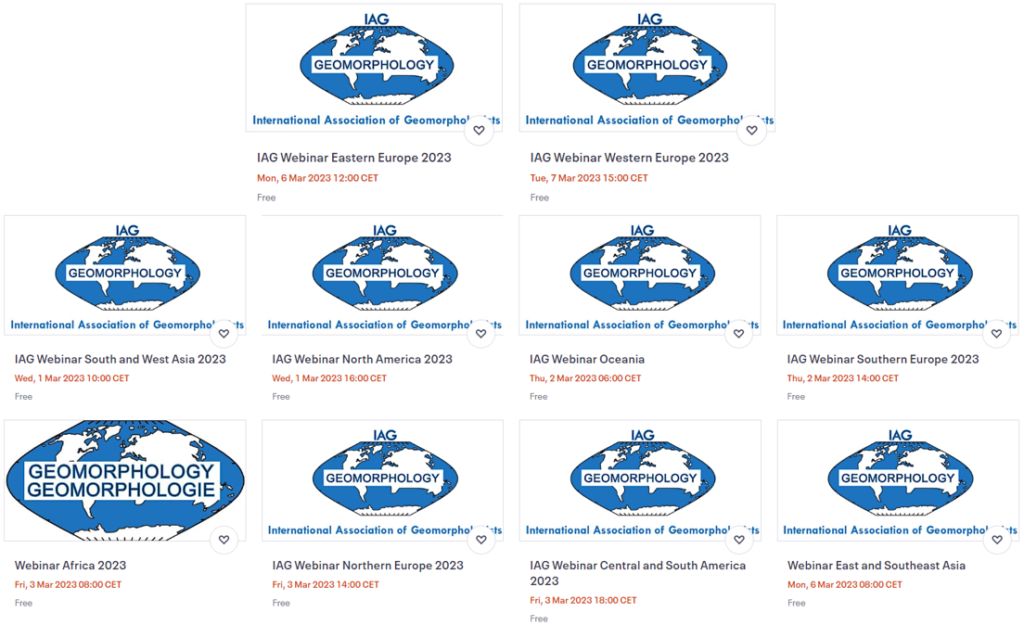

 Attendees of the post-conference intensive course with Prof. Sílvio Rodrigues (photo from Flávio Fernandes).
Attendees of the post-conference intensive course with Prof. Sílvio Rodrigues (photo from Flávio Fernandes).
